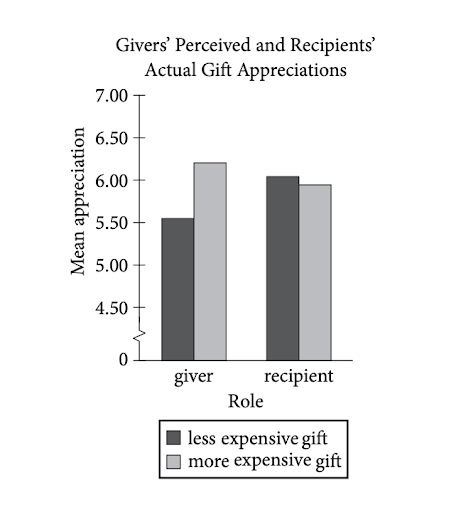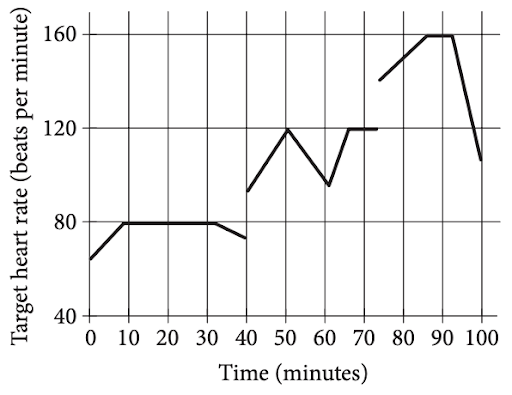CollegeChoice.net is an advertising-supported site. Featured or trusted partner programs and all school search, finder, or match results are for schools that compensate us. This compensation does not influence our school rankings, resource guides, or other editorially-independent information published on this site.
Turn Your Dreams Into Reality
Take our quiz and we'll do the homework for you! Compare your school matches and apply to your top choice today.
The Scholastic Aptitude Test (SAT) assesses a student's understanding of math, writing and language, and reading. Prospective college students take the SAT to meet college admission requirements. Schools review your SAT scores to evaluate your ability to succeed in college.
According to the College Board, 2.2 million high school seniors took the SAT at least once in the 2020-2021 school year. With nearly half of all high school seniors taking the SAT, preparation can help you stand out from the crowd.
Studying for the SAT can help boost your test scores. According to College Board data, students who take the SAT exam more than once overwhelmingly improve their scores. High SAT scores can increase your chances of gaining admission to the college or university of your choice.
This guide provides an overview of the SAT and ways to prepare for a successful exam.
What Is the SAT?
The College Board created the SAT to test what you learned in high school and what you need to know to do well in college. The SAT offers an opportunity to showcase your knowledge and provide a standardized assessment score to colleges. Along with high school GPAs, recommendations, and personal statements, SAT scores provide information to admission departments to determine college acceptance.
While some college applications no longer require standardized test scores like the SAT, many continue to use them as a baseline for college readiness. Many institutions compare SAT scores among applicants to determine an average acceptable score for admissions.
The SAT assesses your knowledge in a few key areas. The evidence-based reading and writing section tests your analytical skills and ability to interpret written passages and graphic data.
The math section of the SAT covers algebra and advanced math equations, problem-solving, and data analysis. Some portions allow you to use a calculator.
See below for more SAT details and sample questions for each section.
Learn What Else Applying to College Entails
When Is the SAT?
The College Board administers the SAT at least six times a year. Registration deadlines occur about one month before the test date. Students can register late for an additional fee.
The chart below highlights upcoming SAT dates and deadlines.
| SAT Date | Registration Deadline | Late Registration |
|---|---|---|
| August 28, 2021 | July 30, 2021 | August 17, 2021 |
| October 2, 2021 | September 3, 2021 | September 21, 2021 |
| November 6, 2021 | October 8, 2021 | October 26, 2021 |
| December 4, 2021 | November 4, 2021 | November 23, 2021 |
| March 12, 2022 | February 11, 2022 | March 1, 2022 |
| May 7, 2022 | April 8, 2022 | April 26, 2022 |
| June 4, 2022 | May 5, 2022 | May 25, 2022 |
You can take the SAT as many times as desired. Taking the SAT at least twice can improve your results since scores tend to increase from the first test to the second. Studying specific content and test taking skills can help improve your super score.
A super score uses your best scores for each section, even across multiple tests. Many colleges and universities that accept super scores encourage or require students to submit all of their SAT scores.
College application deadlines typically occur between November and January. Students receive their SAT scores about ten days after taking the test, but colleges receive scores approximately three weeks after the test taking date. Be sure to take your final SAT exam and send your scores to each college's admission officer before the application deadline.
Where Is the SAT?
SAT sites provide secure testing facilities for students in accessible locations. Testing sites include high schools and other educational institutions. Locate suitable testing sites near you through the College Board test center locator.
Register for your SAT exam online or by phone. With a College Board account and the required fee, you can sign up for the SAT by selecting a date and location. Fee waivers exist for income-eligible students.
Available accommodations for those with documented disabilities include extended time, large text, and extra breaks. Those unable to test on Saturday for religious reasons can request to take the test on Sunday.
How Does SAT Scoring Work?
SAT scores range from 400-1600 for all combined sections of the test. According to the College Board, the average SAT score is 1050 in 2020. You receive a minimum of 200 and a maximum of 800 points for each of two main exam sections. You earn points only for correctly answered questions.
You can automatically send your SAT scores to a select list of institutions chosen on test day or send your scores after reviewing them. If you take more than one SAT, the College Board's Score Choice feature allows you to decide which SAT results to send to specific colleges and universities.
Your SAT score report becomes available to you approximately ten days after taking the test. Colleges receive SAT scores within 20 days of your test date.
Your online score report includes your total score, scores for each section, a score range, benchmarks, average scores, and percentiles.
The score range supports the understanding that your score does not represent everything you know, but a spectrum of knowledge. Colleges receive your score range in addition to each section and total scores.
Benchmarks represent a college readiness scale, identifying the score at which high school students are on track for college. Average scores show other students' SAT scores. Percentiles represent students who scored above and below your score.
You can retake the SAT as many times as you like. Students typically take their first SAT as high school juniors, then again in their senior year. Between tests, you can study to help improve your score. Receiving a below average score may push you to retake the SAT.
High SAT scores may qualify you for merit scholarships awarded to students based on academic performance. High scores may also improve your chances of college admission, especially at highly selective schools. A high SAT score can demonstrate academic growth and development, enhancing an average or low GPA.
However, low scores do not necessarily negate your chances as schools consider other performance indicators, like extracurricular activities and transcripts. Low SAT scores may require you to take remedial college courses, which provide skills to ensure your success in more advanced classes.
Test Sections
The SAT features two sections and four tests. The evidence-based reading and writing section includes a reading test plus a writing and language test. The math section includes two math tests (calculator and no calculator). Each section is timed, and students have a total of three hours to complete the SAT. Test questions focus on skills and knowledge that showcase college readiness.
Only questions answered correctly receive points towards your total SAT score. The more correct answers you submit, the higher your total score. Guessing does not penalize you, so you may improve your score by guessing rather than leaving an answer blank.
Focus your attention on eliminating incorrect answers first, increasing your chances of receiving points for a correct response. Try to limit the amount of time you spend on each question. Give yourself enough time to answer all questions, including more challenging questions as you move through the test.
Time management plays a crucial role in the success of your SAT exam. The more you practice, the easier it becomes to gauge how long you've spent on a question and when to move on. A steady pace lowers your chances of feeling rushed towards the end of a section.
You receive one ten-minute break between the reading test and the writing and language section. You get an additional five-minute break between the math calculator and no calculator sections.
Reading
The reading test focuses on the meaning of words and how word choice changes the context of a piece. Test takers have 65 minutes to complete 52 multiple choice questions based on reading passages. Tables, graphs, and charts may be included in the passages.
The reading section of the SAT always includes a classic or contemporary passage, a U.S. founding document or related text, a social science passage, plus two passages examining scientific concepts.
Sample Question 1

The graph following the passage offers evidence that gift-givers base their predictions of how much a gift will be appreciated on
- the appreciation level of the gift-recipients.
- the monetary value of the gift.
- their own desires for the gifts they purchase.
- their relationship with the gift-recipients.
Sample Question 1 Answer
Choice B is the best answer.
Source: CollegeBoard.org
Sample Question 2

In lines 9-17, the author of Passage 1 mentions several companies primarily to
- note the technological advances that make space mining possible.
- provide evidence of the growing interest in space mining.
- emphasize the large profits to be made from space mining.
- highlight the diverse ways to carry out space mining operations.
Sample Question 2 Answer
Choice B is the best answer.
Source: CollegeBoard.org
Writing and Language
The writing and language test requires you to find mistakes and weaknesses in reading passages and correct them.
You receive 35 minutes to answer 44 multiple choice questions, each based on a reading passage or informational graphic. Passages created specifically for the SAT include errors that you must edit or improve.
Sample Question 1
Though these conservation methods can be costly and time-consuming, they are well worth the effort. Nutritionists consider Greek yogurt to be a healthy food: it is an excellent source of calcium and protein, serves to be a digestive aid, and it contains few calories in its unsweetened low- and nonfat forms. Greek yogurt is slightly lower in sugar and carbohydrates than conventional yogurt is.
The writer is considering deleting the bolded sentence. Should the writer do this?
- Yes, because it does not provide a transition from the previous paragraph.
- Yes, because it fails to support the main argument of the passage as introduced in the first paragraph.
- No, because it continues the explanation of how acid whey can be disposed of safely.
- No, because it sets up the argument in the paragraph for the benefits of Greek yogurt.
Sample Question 1 Answer
Choice D is the best answer.
Source: CollegeBoard.org
Sample Question 2
[1] Thus, even though I already had all the equipment I needed in my home office, I decided to try using a coworking space in my city. [2] Because I was specifically interested in coworking’s reported benefits related to creativity, I chose a facility that offered a bright, open work area where I wouldn’t be isolated. [3] Throughout the morning, more people appeared. [4] Periods of quiet, during which everyone worked independently, were broken up occasionally with lively conversation.
The writer wants to add the following sentence to the paragraph. After filling out a simple registration form and taking a quick tour of the facility, I took a seat at a table and got right to work on my laptop. The best placement for the sentence is immediately
- before sentence 1.
- after sentence 1.
- after sentence 2.
- after sentence 3.
Sample Question 2 Answer
Choice C is the best answer.
Source: CollegeBoard.org
Math (No Calculator)
The math portion of the SAT, separated into two sections, tests your knowledge of various mathematical concepts. Much of the math test focuses on problem solving, requiring multiple steps to answer a single question.
Both sections of the math test include multiple choice and grid-in responses. You must either select from four provided options or determine an answer yourself.
The no-calculator portion of the math test assesses fluency and number sense. With 25 minutes provided for this section, you can complete 20 questions.
Sample Question 1
If a2 + 14a = 51 and a > 0, what is the value of a + 7?
Sample Question 1 Answer
10 is correct.
Sample Question 2
If (ax + 2)(bx + 7) +15x2 + cx + 14 for all values of x, and a + b = 8, what are two possible values for c?
- 3 and 5
- 6 and 35
- 10 and 21
- 31 and 41
Sample Question 2 Answer
Choice D is correct.
Source: CollegeBoard.org
Math (With Calculator)
The calculator math test includes 38 questions. In 55 minutes, the test covers complex modeling and mathematical reasoning. This test consists of multiple choice questions and grid-in responses.
When practicing the calculator portion of the math test, consider when to use your calculator to save time and when it might slow down your performance. Overusing your calculator can prevent you from moving quickly past questions that you can solve without a calculator and on to more challenging questions.
Sample Question 1

John runs at different speeds as part of his training program. The graph shows his target heart rate at different times during his workout. On which interval is the target heart rate strictly increasing then strictly decreasing?
- Between 0 and 30 minutes
- Between 40 and 60 minutes
- Between 50 and 65 minutes
- Between 70 and 90 minutes
Sample Question 2 Answer
Choice B is correct.
Source: CollegeBoard.org
Sample Question 2
Which of the following numbers is NOT a solution of the inequality 3 −5≥4 −3 x x ?
- −1
- −2
- −3
- −5
Sample Question 2 Answer
Choice A is correct.
Source: CollegeBoard.org
SAT Study Resources
SAT study resources include apps, books, prep courses, and tutors. Study resources also vary in cost, with many free options and some costing thousands of dollars.
The College Board SAT study guide describes the test and gives pointers on how to do well. This resource is a good first step in determining the study plan that works best for you.
Libraries, local bookstores, and online shops offer SAT prep books to help you study. SAT prep books often include at least one practice test and explanations to support your learning.
Creating your own SAT prep program using free resources can save you lots of money. You can combine practice tests, apps, and sample questions with answers to build an SAT prep course you can use on your own time. Make a study plan or schedule to help you stay on track.
Use SAT prep apps alongside other programs, test questions, and review resources to enhance your study plan. Lots of SAT prep apps exist, including ones focused on vocabulary building and basic math practice. Look for apps that provide practice questions similar to ones found on the SAT exam.
A few free SAT prep apps to consider include:
- Khan Academy
- PerfectPrep
- SAT Prep
- SAT Exam Prep & Practice
- SAT Flashcards: Prep & Vocab
Prep Courses
Consider enrolling in an SAT prep course for direct guidance in your SAT preparation. Prep courses provide detailed lessons, hours of instruction, and full length practice tests to support your SAT goals.
| Course | Features | Cost |
|---|---|---|
| Shmoop | Initial free diagnostic practice test Over 1000 practice questions |
$15/month |
| Magoosh | Daily study tasks Video or text answer explanations Up to three practice tests Up to 16 hours live instruction |
$100-$399 |
| ePrep | 2-12 month courses 2-6 full length practice tests Video answer explanations 112 video lessons by subject |
$129-$599 |
| Kaplan | On demand, live, or unlimited course options 30-minute video lessons Online classes |
$199-$1299 |
| PrepScholar | 15+ hours of customized SAT preparation Full length practice tests Online study videos |
$397-$995 |
| Veritas Prep | Self study and live online classes Downloadable SAT study book Live homework help |
$499-$899 |
| Princeton Review | 36 hours of instruction Customized homework assignments 26 full length practice tests |
$649-$1749 |
| Sylvan | 30 hours of SAT prep over 8 weeks In person and online lessons Full length practice tests |
$999+ |
Practice Tests
Online and paper practice tests can help you form strong test taking habits, learn from previous mistakes, and identify areas for growth. Some online resources provide free practice tests. Prep courses and study books also include practice tests.
| Practice Test | Features | Cost |
|---|---|---|
| Khan Academy | Daily practice questions with answer explanations Performance tracker Study videos, lessons, tips, and strategies Full length practice tests |
Free |
| College Board | 8 full length practice tests Sample questions Answer explanations Scoring guides |
Free |
| Kaplan | 1 practice test Daily practice questions 20 minute tests with 12 SAT prep questions |
Free |
| Ivy Global | 2 free downloadable practice tests 2-hour free diagnostic test Practice test study books for purchase |
$0-$33 |
Tutors
SAT tutors provide one-on-one prep sessions with individualized plans to support your SAT goals. Some tutors charge by the hour, while others charge a flat fee for their services. Think about the program's cost, time commitment, and format when considering this SAT prep option.
| Tutor | Features | Cost |
|---|---|---|
| Princeton Review | 1-on-1 tutoring sessions Online or in person availability On demand tutoring options 3-4 full length proctored tests |
$40/hr-$150/hr |
| Inspirica | 1-on-1 and small group options 1-15 week programs available Video library and study books |
$245-$1995 |
| Testive | 1-2 live, online coaching sessions per week Digitally proctored practice tests Daily practice assignments |
$399-$799 |
| PrepScholar Tutors | Individualized online prep program Digital study books 4-54 hour tutoring options |
$995-$6995 |
| Kaplan | Private tutoring with 10-40 hour options Practice tests with score analysis Four SAT prep books Live online course |
$1999+ |
| Veritas Prep | 12-48 hour packages Daily live homework help In-person and online availability Self study and live online course additions |
$2400-$7400 |
Frequently Asked Questions
What does the SAT cover?
The SAT covers math, reading, and writing skills learned at the high-school level. The math portion includes a calculator and a non-calculator section. The evidence-based reading and writing section of the SAT includes multiple choice questions connected to reading passages and infographics.
What is a good SAT score?
An average SAT score is around 1050. High scores include those above the average mark. College and university score requirements vary. Schools may provide guidelines for average SAT scores in their admission requirements.
Which are the best SAT prep programs?
The best SAT prep programs offer practice tests, answer explanations, and daily homework plans. Khan Academy provides free SAT study resources. Programs like Kaplan and Princeton Review offer their resources for upwards of one thousand dollars.
How many SAT practice tests are there?
College Board offers at least ten official SAT practice tests. Additional practice tests include tests from previous years and questions from old tests compiled together. Some organizations create their own practice tests using questions similar to those on the official SAT.
What tests does the College Board administer?
The College Board administers the SAT, PSAT/NMSQT, PSAT 10, PSAT 8/9, and 38 AP tests. They also offer preparatory plans and practice resources for each test.
Reviewed by:

Lonnie Woods III
Lonnie Woods III is a student affairs administrator, professor, and professional development practitioner whose research examines the career competencies of college students studying arts-related majors. Lonnie holds a bachelor of science degree in fine art photography from Towson University and a master of arts degree in higher education and student affairs from New York University (NYU). Lonnie has 10+ years of experience working in higher education, with professional experience spanning various institutions, including Pratt Institute, New York University, The George Washington University, and Columbia University. Lonnie is a paid member of Red Ventures Education's freelance review network.
Featured Image: FatCamera / E+ / Getty Images
Recommended Reading
Helping you prepare and gain the most out of your educational experience.
